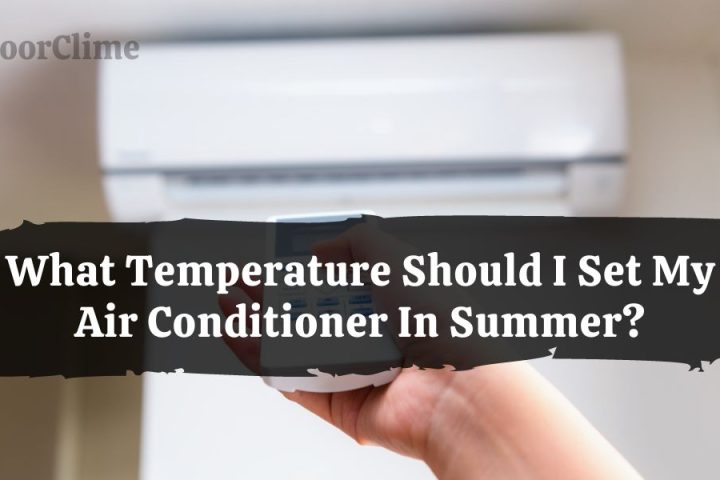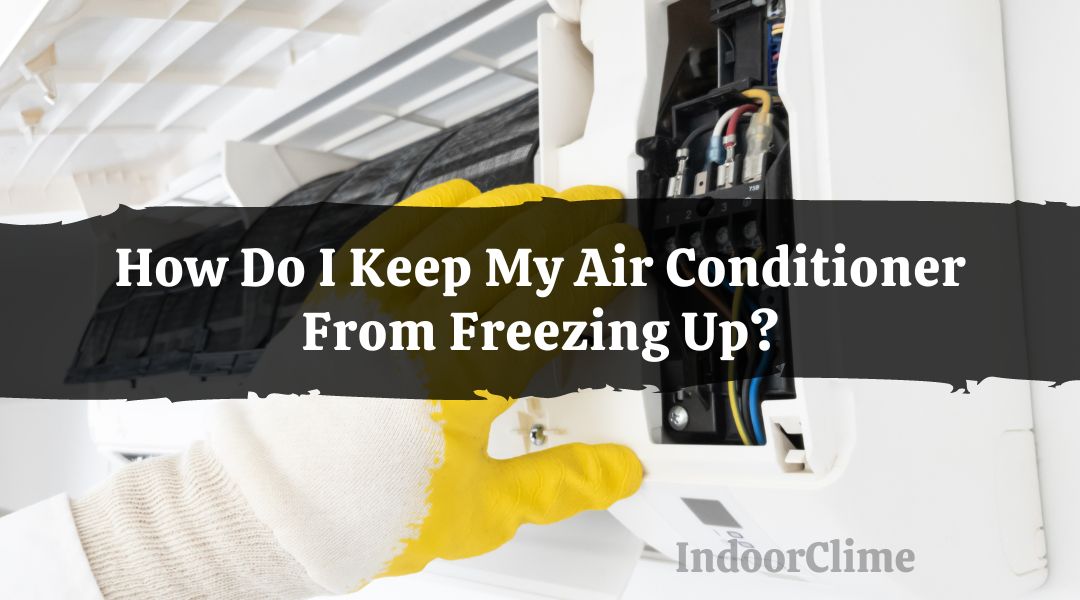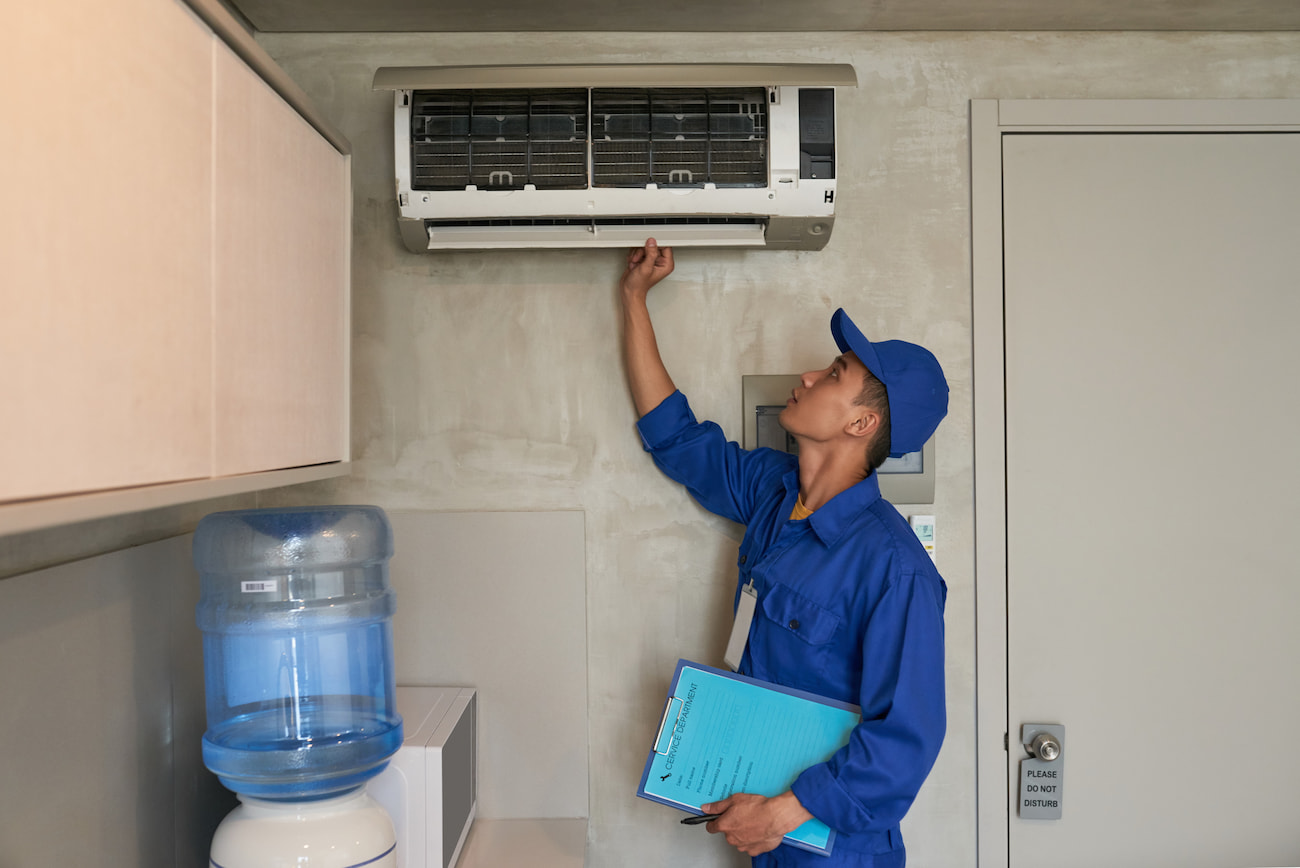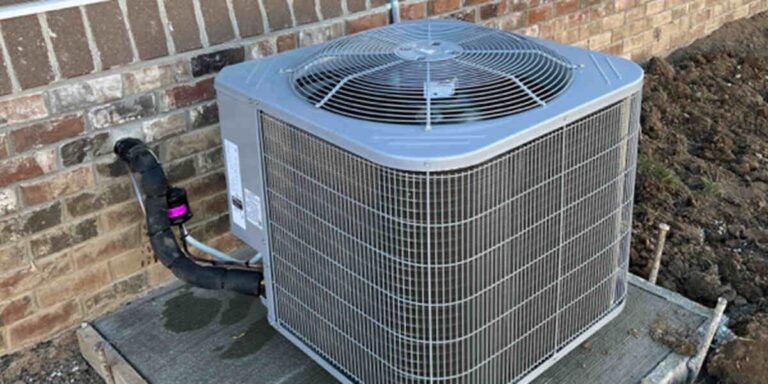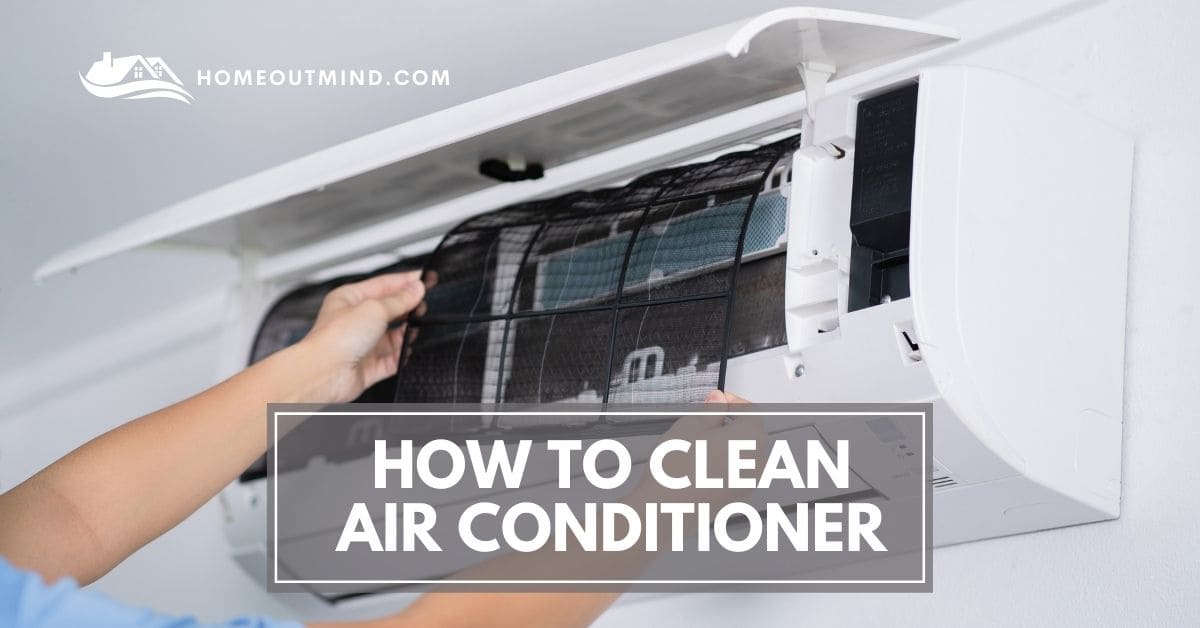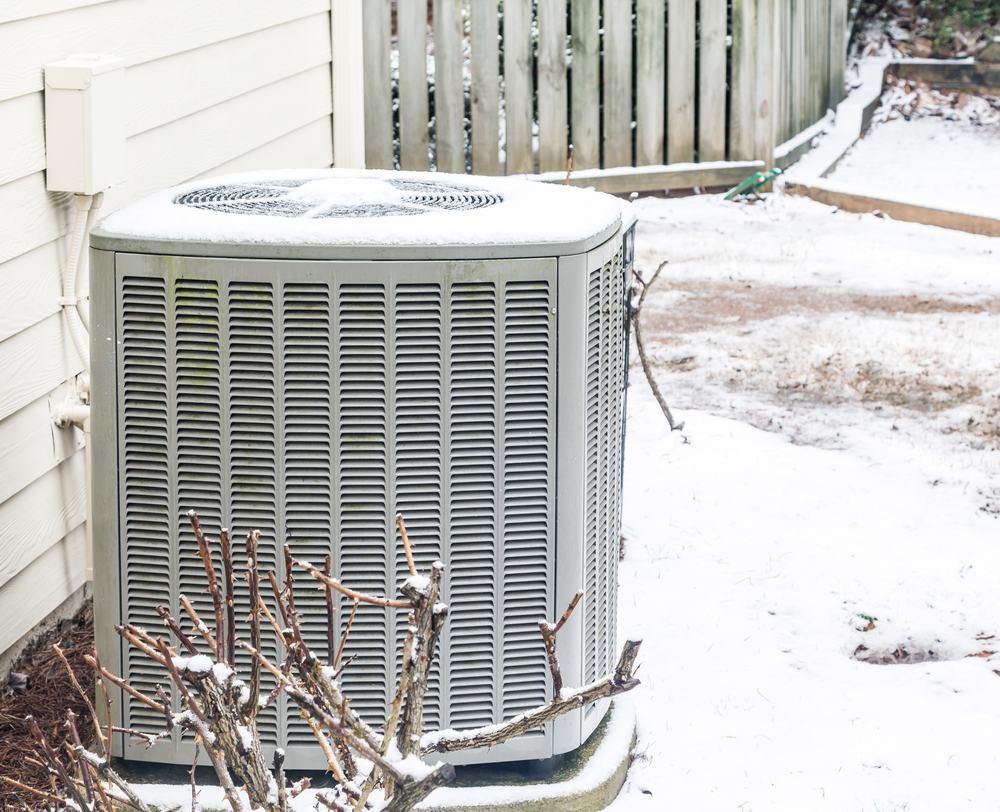What Should I Keep My Air Conditioner On
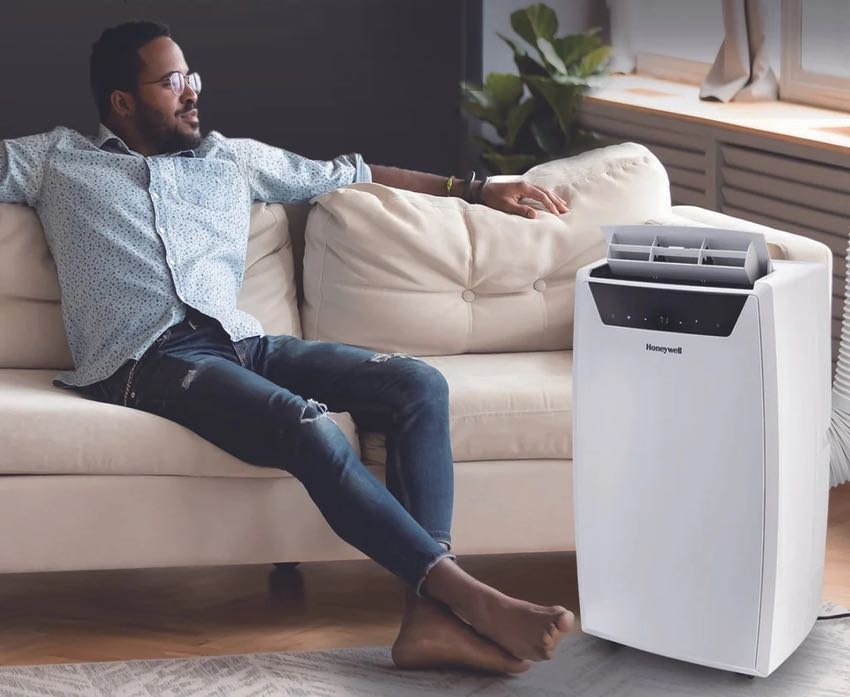
Deciding whether to keep your air conditioner running continuously or cycle it on and off is a common dilemma for homeowners. There's no one-size-fits-all answer, as the best approach depends on several factors, including your climate, home insulation, energy costs, and personal preferences. This guide will help you understand the pros and cons of each approach, allowing you to make an informed decision that optimizes comfort and energy efficiency.
Continuous Operation: The "Always On" Approach
The primary argument for keeping your air conditioner running continuously is maintaining a consistent temperature and humidity level. Proponents believe this leads to greater comfort and potentially lower overall energy consumption in certain situations.
Pros of Continuous AC Operation:
- Consistent Temperature: Eliminates temperature fluctuations, keeping your home consistently comfortable.
- Reduced Humidity: Running the AC constantly helps to remove moisture from the air, preventing mold growth and improving indoor air quality. This is especially important in humid climates.
- Potentially Lower Energy Consumption (Under Specific Circumstances): In well-insulated homes, maintaining a constant temperature might require less energy than repeatedly cooling a hot house. The AC works less hard to maintain the desired temperature.
- Quieter Operation: Avoids the constant starting and stopping of the unit, which can be noisy and disruptive.
Cons of Continuous AC Operation:
- Increased Wear and Tear: Running the AC constantly puts more strain on the compressor and other components, potentially shortening its lifespan.
- Higher Energy Consumption (in Most Cases): In poorly insulated homes, the AC will have to work harder to maintain a constant temperature, leading to higher energy bills. This is especially true during peak summer months.
- Potential for Frozen Evaporator Coils: If the airflow is restricted (e.g., due to a dirty air filter), the evaporator coils can freeze up, requiring a costly repair.
Cyclical Operation: The "On and Off" Approach
The traditional approach is to allow your air conditioner to cycle on and off based on the thermostat setting. This method aims to conserve energy by only running the AC when necessary.
Pros of Cyclical AC Operation:
- Lower Energy Consumption (Generally): Reduces overall energy usage by only running the AC when the temperature rises above the setpoint.
- Extended Equipment Lifespan: Less strain on the compressor and other components, potentially extending the lifespan of your AC unit.
- Cost Savings: Lower energy bills translate into cost savings.
Cons of Cyclical AC Operation:
- Temperature Fluctuations: The temperature inside your home will fluctuate as the AC cycles on and off.
- Increased Humidity: When the AC is off, humidity levels can rise, leading to discomfort and potential mold growth.
- Noisier Operation: The constant starting and stopping of the unit can be noisy.
- Potential for Higher Energy Consumption (in Some Cases): If your home is poorly insulated, the AC will have to work harder to cool it down each time it turns on, potentially negating some of the energy savings.
Factors to Consider When Making Your Decision
The optimal approach for you depends on several factors:
- Climate: In hot and humid climates, continuous operation might be beneficial to control humidity. In milder climates, cyclical operation is usually sufficient.
- Home Insulation: Well-insulated homes retain cool air more effectively, making continuous operation more efficient. Poorly insulated homes benefit more from cyclical operation.
- Thermostat Type: Programmable thermostats allow you to schedule temperature changes throughout the day, optimizing energy efficiency. Smart thermostats learn your preferences and adjust the temperature automatically.
- Energy Costs: If electricity rates are high, cyclical operation is usually the more cost-effective option.
- AC Unit Efficiency (SEER Rating): A higher SEER (Seasonal Energy Efficiency Ratio) rating indicates a more efficient AC unit. Highly efficient units can operate continuously with less energy consumption. Look for units with a SEER rating of 16 or higher.
Understanding Key HVAC Ratings: SEER, AFUE, and HSPF
When evaluating HVAC systems, it's crucial to understand the significance of various ratings. These ratings provide insights into the energy efficiency and performance of the equipment.
- SEER (Seasonal Energy Efficiency Ratio): As mentioned above, this measures the cooling efficiency of an air conditioner. A higher SEER rating indicates better energy efficiency. Current minimum standards are typically around 14 SEER, while high-efficiency units can achieve 20 SEER or higher.
- AFUE (Annual Fuel Utilization Efficiency): This rating applies to furnaces and measures their heating efficiency. It represents the percentage of fuel that is converted into usable heat. A higher AFUE rating means less fuel is wasted. Modern high-efficiency furnaces can achieve AFUE ratings of 90% or higher.
- HSPF (Heating Seasonal Performance Factor): This rating is used for heat pumps and measures their heating efficiency. A higher HSPF rating indicates better energy efficiency.
Popular HVAC Brands and Models
Several reputable HVAC brands offer a wide range of air conditioners and furnaces. Here are a few popular options:
- Carrier: Known for their high-efficiency and innovative features. Their Infinity series air conditioners boast impressive SEER ratings.
- Trane: A reliable brand with a reputation for durability and performance. Their XV series air conditioners are highly regarded.
- Lennox: Offers a range of energy-efficient options, including their Signature series air conditioners and furnaces.
- Goodman: A budget-friendly brand that provides reliable performance at a lower price point.
- Rheem: Known for their innovative technology and smart home integration.
When choosing a specific model, consider your home's size, climate, and budget. Consult with an HVAC professional to determine the appropriate size and type of unit for your needs.
Warranty and Maintenance
A solid warranty is essential for protecting your investment in a new HVAC system. Most manufacturers offer warranties on their equipment, but the terms and conditions can vary. Be sure to read the warranty carefully to understand what is covered and for how long.
Regular maintenance is crucial for keeping your HVAC system running efficiently and extending its lifespan. Schedule annual maintenance checks with a qualified HVAC technician. These checks typically include:
- Inspecting and cleaning the coils
- Checking refrigerant levels
- Inspecting and tightening electrical connections
- Lubricating moving parts
- Replacing air filters
Proper maintenance can help prevent costly repairs and ensure that your HVAC system operates at peak performance.
Smart Thermostats: A Game Changer
Smart thermostats offer advanced features that can help you optimize your HVAC system's performance and save energy. These thermostats learn your preferences and adjust the temperature automatically, and many allow you to control your HVAC system remotely via a smartphone app.
Some popular smart thermostat brands include:
- Nest: Known for its sleek design and user-friendly interface.
- Ecobee: Offers advanced features like room sensors to optimize temperature in different areas of your home.
- Honeywell: A well-established brand with a range of smart thermostat options.
Investing in a smart thermostat can be a wise decision, as it can help you save money on energy bills and improve your comfort.
Conclusion: Finding the Right Balance
Ultimately, the decision of whether to keep your air conditioner running continuously or cycle it on and off depends on your individual circumstances. Carefully consider the factors outlined in this guide, and consult with an HVAC professional to determine the best approach for your home.
By understanding the pros and cons of each method, and by investing in a high-efficiency HVAC system and a smart thermostat, you can optimize comfort and energy efficiency while minimizing your carbon footprint and saving money on energy bills. Remember to prioritize regular maintenance to ensure that your system operates at peak performance for years to come. Properly maintained HVAC equipment not only saves you money but also contributes to a healthier and more comfortable indoor environment.

